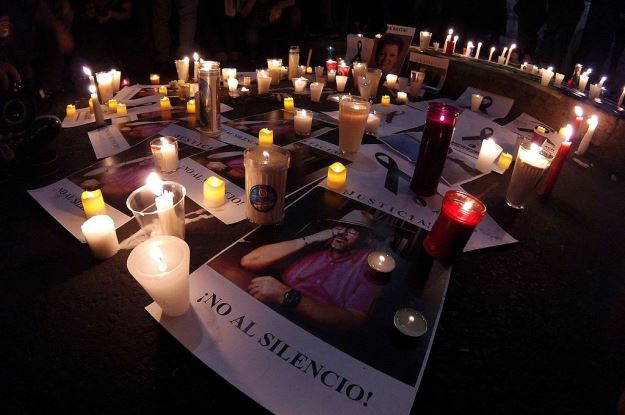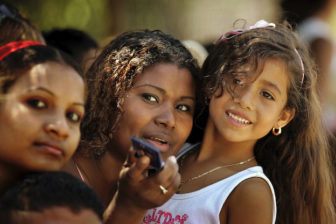This month, facing public outrage over a spate of killings of journalists, Mexico’s President Enrique Peña Nieto responded with promises of institutional change and improved cooperation between federal and state investigators. For Mexicans, this kind of official rhetoric has become part of a time-worn routine that does little to correct the country’s national crisis of impunity. In 2016 alone, 11 journalists were killed and 426 were assaulted. Only about a quarter of these incidents even led to a police investigation; of those, a handful of perpetrators were punished.
Impunity on this scale requires more than vague public commitments; continued failure to act imperils government credibility. Even as Peña Nieto spoke at Los Pinos, reporters angry over the most recent murder – the killing on May 15 of respected journalist Javier Valdez – staged a protest demanding action.
Within Mexico, courageous activists, judges, and others have taken up the call for exceptional measures – including the provision of international assistance to support a restructuring of the justice system. The precise configuration of international and national expertise and participation should be the subject of robust discussion in Mexican society. But there have been many examples of positive international contributions in domestic justice issues around the world, whether as advisers, investigators, prosecutors or judges. The moment has come for Mexico to consider this option.
Violence without redress extends beyond crimes against journalists. There were 22,932 recorded homicides in Mexico in 2016, an increase of more than 20 percent from 2015. But a comprehensive report by our two organizations and four other Mexican groups in 2016 found that, on average, Mexican authorities secured convictions in only about one of every 10 homicide cases from the beginning of 2007 through 2012. Federal prosecutors issued indictments in only 16 percent of homicide investigations they opened between 2009 and July 2015. Legal redress is even less likely for other crimes. Cases of torture and enforced disappearance involving the federal and state security forces are rarely investigated or prosecuted.
More than two and a half years after the country’s highest profile atrocity – the infamous disappearance of 43 students from the Ayotzinapa teaching college – and their families are still waiting for answers and justice.
Last year, the UN High Commissioner for Human Rights urged Mexico to establish an advisory council of international and domestic human rights experts to work with the government to reinforce the state’s capacity to investigate and prosecute grave crimes. This body could “elaborate and publicly present a national assessment on impunity and recommend a roadmap to address the issue, gauge its effective implementation and present public periodic reports,” said the High Commissioner Prince Zeid Ra’ad al-Hussein.
Mexico has done something similar in the past. In November 2014, the government accepted the support of an advisory group of five leading Latin American jurists and human rights defenders, set up by the Inter-American Commission on Human Rights, to address the botched probe into the Ayotzinapa disappearances. This initiative ended in acrimony after the group delivered a report highly critical of the Mexican investigation. It is not enough to invite expertise; it’s also important to accept their findings.
Indeed, there are good regional examples of how national and international capacity, brought together, can deliver results. In Guatemala, the UN-backed International Commission against Impunity in Guatemala (known by its Spanish acronym CICIG) has helped local prosecutors expose corruption at the highest levels of government, leading to charges against the country’s president.
Another international commission, created by the Organization of American States, is working with Hondurans to combat drug gangs and violence. Recognizing their contribution to regional and U.S. security, senior State Department and Homeland Security officials have pledged sustained backing for these efforts. Similar efforts are needed in Mexico.
At the gathering of journalists who mourned Javier Valdez and called for justice in his name, renowned broadcaster Carmen Aristegui summed up the case for international support in bolstering justice in Mexico.
“The state must protect journalists,” she said. “But the state is corrupted and does not help us.”
—
Goldston is executive director of the Open Society Justice Initiative
Guevara is executive director of the Mexican Commission for the Promotion and Defense of Human Rights







